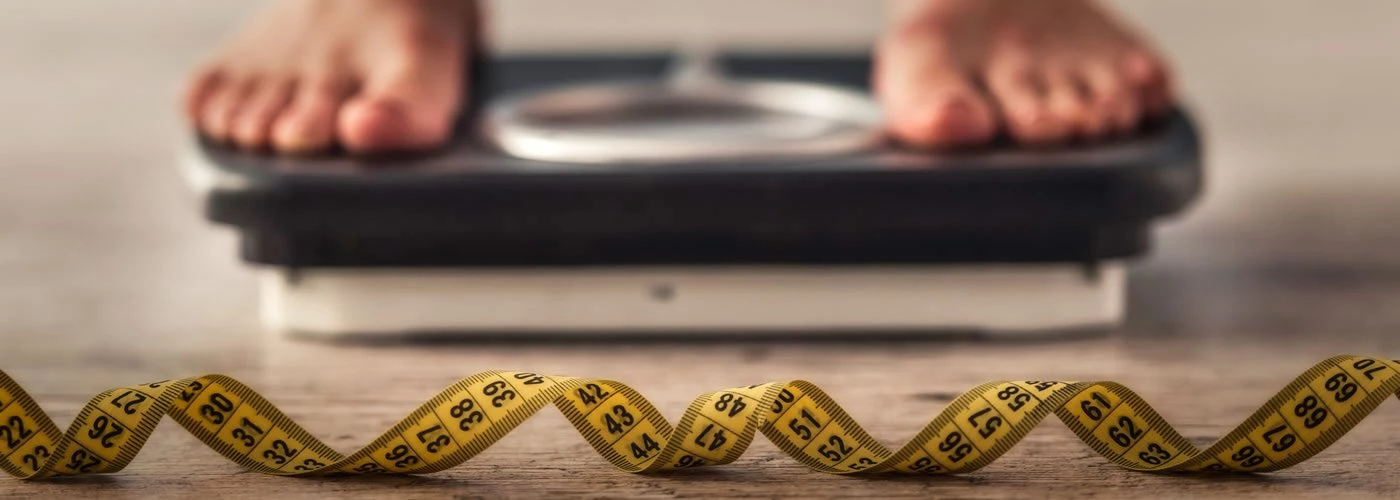Krystle Zuniga is one of our featured speakers at the YSC Summit in Austin, Texas, March 8-10, 2019. Join 600 survivors, co-survivors and healthcare providers for 3 days of inspiring and informative sessions about the unique concerns of young adults affected by breast cancer.
Weight Gain During and After Cancer Treatment
Weight gain is a common, and often distressing, side effect of cancer treatment. Reports have estimated 50%–96% of women experience weight gain after diagnosis, with average weight changes of 5-11 lbs. With or without weight gain, changes in body composition, defined as gains in fat mass or loss of muscle mass, are also frequently reported.
Why Does It Happen?
We used to assume that changes like “stress eating,” eating more or resorting to high-calorie comfort foods, was the primary reason for weight gain. Research has now demonstrated there are multiple contributors to consider. And that some women may be more susceptible to weight change than others.
Changes in hormone levels due to hormonal therapies (i.e., aromatase inhibitors or tamoxifen) or chemotherapy-induced menopause can cause greater gains in fat mass and simultaneous loss of muscle. Pre-menopausal women may be more susceptible to these shifts. Higher levels of inflammation in the body due to cancer and its treatment can also contribute to muscle loss.
Effect of Weight Gain on Health
Oncologists may not address the issue of weight gain due to more immediate health concerns and time constraints. Or because they feel uncertain on how to best deliver health behavior change information. However, weight gain is not innocuous. Potential adverse effects of weight gain and excess body weight include decreased survival, increased risk of recurrence, increased risk of chronic diseases such as diabetes and heart disease, and negative impacts on quality of life and emotional well-being. Much of the weight gained is never lost. That continues to put individuals at greater risk for late side effects and other chronic disease.
How to Combat Changes in Body Composition
Weight and body composition changes due to treatment are not inevitable and can be lessened with lifestyle approaches.
Aerobic exercise has been shown to reduce weight gain during chemotherapy. Resistance training is critical for the maintenance and growth of muscle. But only 20% of women meet the recommendation of performing resistance exercise twice a week.
Muscle mass is the most significant predictor of metabolic rate. So, increasing and/or maintaining muscle mass can help maintain a healthy metabolism, making weight loss attempts more effective. Seek out a cancer and exercise-certified trainer who has additional understanding of the limitations and risks from cancer therapy. They'll help you develop a safe and effective exercise program for cancer patients and survivors.
Learn More
Effective weight-loss interventions also include reducing overall calories and focusing on a plant-based diet high in fruits, vegetables, and whole grains. They often limit red and processed meats, and refined grains and sugars.
Exercise in combination with diet has been demonstrated as the most effective strategy for reducing body fat and preserving muscle. Registered dietitians are experts in nutrition and will be best equipped to provide individualized nutrition therapy and counseling. Find a dietitian in your area who can help navigate what dietary approach may work best for you based on your needs and preferences.
It's Time for Bed!
Don’t discount the effects of sleep and stress on weight management as well. High stress levels and inadequate sleep can affect hormone levels and metabolism, and make it more difficult to find enough energy and willpower to exercise and choose nutritious foods.
Unfortunately, weight gain and difficulty losing weight are common problems in breast cancer. And it can be frustrating to make healthy choices and still not see the scale budge. However, engaging in a healthy lifestyle, even if the scale doesn’t change, will have numerous physical and mental health benefits!
 Dr. Krystle Zuniga is a registered and licensed dietitian and an assistant professor in Nutrition and Foods at Texas State University. She completed her dietetic internship and earned her doctoral degree in Nutritional Sciences from the University of Illinois Urbana-Champaign. Dr. Zuniga has conducted nutrition and cancer research for over 10 years, and her research has been published in scientific journals including Breast Cancer Research and Treatment, Cancer Prevention Research, Nutrition and Cancer, and Journal of Geriatric Oncology. She also owns a private practice, ZNutrition, LLC, providing nutrition services for cancer patients, survivors, and caregivers at Cancer Rehab Austin, Austin’s first specialty outpatient oncology rehab clinic. Dr. Zuniga enjoys sharing her passion, experience and knowledge in nutrition to help cancer patients and survivors feel empowered, using nutrition to optimize outcomes and improve quality of life.
Dr. Krystle Zuniga is a registered and licensed dietitian and an assistant professor in Nutrition and Foods at Texas State University. She completed her dietetic internship and earned her doctoral degree in Nutritional Sciences from the University of Illinois Urbana-Champaign. Dr. Zuniga has conducted nutrition and cancer research for over 10 years, and her research has been published in scientific journals including Breast Cancer Research and Treatment, Cancer Prevention Research, Nutrition and Cancer, and Journal of Geriatric Oncology. She also owns a private practice, ZNutrition, LLC, providing nutrition services for cancer patients, survivors, and caregivers at Cancer Rehab Austin, Austin’s first specialty outpatient oncology rehab clinic. Dr. Zuniga enjoys sharing her passion, experience and knowledge in nutrition to help cancer patients and survivors feel empowered, using nutrition to optimize outcomes and improve quality of life.



